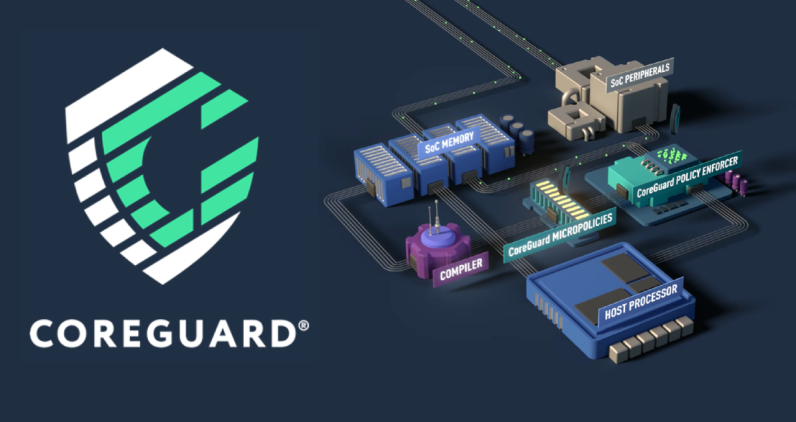
Cybersecurity is something that affects all of us, whether we're running a business, working for the government, or just trying to protect our personal information. As technology gets more advanced, so do the methods used by hackers, and the rise of AI technology has introduced new complexities to the cybersecurity landscape. Cyberattacks are becoming more frequent, often taking advantage of small mistakes in software to steal sensitive data or shut down systems.
Traditionally, we've relied on things like firewalls and antivirus software to protect us, but these tools often only react to known threats, leaving us exposed to new types of attacks that haven't been seen before. Dover Microsystems, founded by Jothy Rosenberg, tackles the shortcomings of traditional cybersecurity, providing strong protection for AI chips and AI software systems with its hardware-based solution called CoreGuard.
Unlike typical software defenses that can be bypassed by skilled hackers, CoreGuard is built right into the hardware of devices. It continuously monitors every command processed by the system, stopping security threats in real time before they can cause damage. This proactive defense offers a higher level of protection, ensuring that sensitive data, such as the models used to drive AI engines and vital systems, stay safe, even against the most sophisticated cyberattacks.
Rosenberg's cybersecurity expertise grew out of his work at BAE Systems, where he led a $25M research contract focused on developing advanced solutions to counter sophisticated, nation-state-funded cyberattacks in collaboration with programs from the Defense Advanced Research Projects Agency (DARPA).
During this period, he recognized that many security breaches stemmed from the vulnerabilities in software-based defenses, which attackers could exploit to gain access. This realization led him to develop CoreGuard, a new technology that embeds security directly into a device's hardware. Unlike software defenses, which can be manipulated or bypassed remotely, hardware-based protection is immune to network attacks because its functionality is permanently etched into the silicon and cannot be reprogrammed.
Driven by his experiences at DARPA and his desire to address the evolving nature of cyber threats, Rosenberg founded Dover Microsystems in 2017 to commercialize CoreGuard and bring this hardware-based cybersecurity solution to market.

CoreGuard works by embedding security protocols into the microprocessor of a system. The technology relies on a rule-based oversight model that examines every instruction executed by the processor. These rules, which are based on principles of secure computing, allow CoreGuard to detect malicious behaviors in real time and stop them before they can exploit vulnerabilities or cause harm.
CoreGuard monitors all transactions between the processor and memory, ensuring that only authorized instructions are executed. It acts as an execution-time enforcer, checking each instruction for compliance with predefined security policies. If an instruction violates the system's security policies, CoreGuard prevents it from being executed, effectively blocking potential attacks. This level of granularity allows CoreGuard to protect against a wide range of attack types, including buffer overflows, code injection, data corruption, and new AI-specific attacks such as poisoning, model extraction, adversarial example, and privilege escalation—common tactics used in cyberattacks.
What sets CoreGuard apart is its ability to address zero-day attacks—those that exploit previously unknown vulnerabilities. Traditional security measures typically rely on identifying known attack patterns, but CoreGuard's rules-based system is proactive, meaning it can prevent threats before they are even recognized. Additionally, since CoreGuard operates at the hardware level, it is not dependent on software updates, which makes it more robust and reliable in continuously evolving threat landscapes.
"CoreGuard is more than just a cybersecurity product—it is on a mission to protect critical systems and ensure the safety of the digital world. Our vision has always been to create a future where hardware security is integral to every computing device, preventing threats before they can cause harm," states Rosenberg.
As cyberattacks become more frequent and sophisticated, solutions like CoreGuard will become increasingly important in protecting critical infrastructure, government systems, and private enterprises alike. Dover Microsystems is leading the fight against cybercrime, especially as AI-driven systems like robots and autonomous vehicles become prime targets. A successful attack on these systems can spread across all connected hardware, causing widespread disruption. Dover's advanced security solutions are crucial in protecting against these growing threats, ensuring a safer, more secure digital future for all. To learn more about CoreGuard, visit www.dovermicrosystems.com.







Join the Conversation